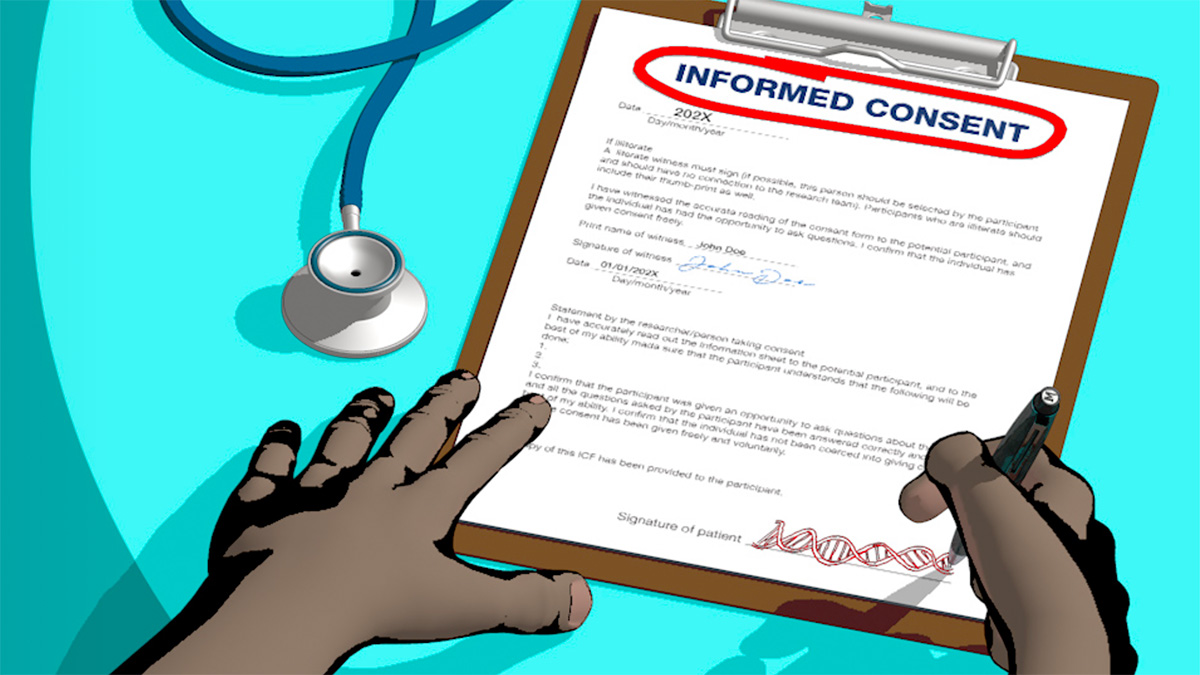The human genome sequence is now complete
The beginning of spring brings some good budgetary news for NIH and NHGRI. On March 11, the U.S. Congress passed a Fiscal Year 2022 federal budget, which provides ~$45 billion for NIH (an increase of $2.03 billion). NHGRI’s budget is $639 million, an increase of 3.8% over last year. With the positive news about our Fiscal Year 2022 budget, we can now move forward with funding and conducting the planned 2022 research activities.
In a bit of additional internal reorganization, NHGRI’s Communications and Public Liaison Branch (CPLB) was recently renamed the Office of Communications (or “the OC”). Part of the reason for this renaming was to provide name symmetry for the three sibling offices that now reside within the NHGRI Office of the Director: specifically, the Office of Communications, the Office of Genomic Data Science, and the Training, Diversity, and Health Equity Office.
All the best,
![]()
Genomic Data Sharing Spotlight
When pursuing clinical genomic studies, it is important to be transparent with both research participants and patients about how their genomic data will be used and shared. In the clinical setting, where patients are not necessarily enrolled in a research study when first seeking clinical care, conversations about how genomic data may later be shared in databases can sometimes be an afterthought, making it difficult to determine whether and how data can be shared down the line. To address this issue, the ClinGen Education, Communication, and Training Working Group developed a helpful one page consent form and training materials, which could be used as a model by others in point-of-care settings when collecting specimens that may later be used to generate genomic data that will be submitted to a database for future clinical and/or research use. Available in four different languages, the document is now accessible to a wide range of patients.
As the lines between patient care and research continue to evolve and blur, these sorts of mechanisms for patient consent are critical to maintaining the trust of the public in genomics research. Did you know that the top contributors of clinically relevant genomic variants to ClinVar are commercial laboratories? These groups are doing their part to ensure that future patients, no matter where they have their genomic tests performed, can have a better picture of the clinical significance of their results.

About The Genomics Landscape
A monthly update from the NHGRI Director on activities and accomplishments from the institute and the field of genomics.
Last updated: April 6, 2022





